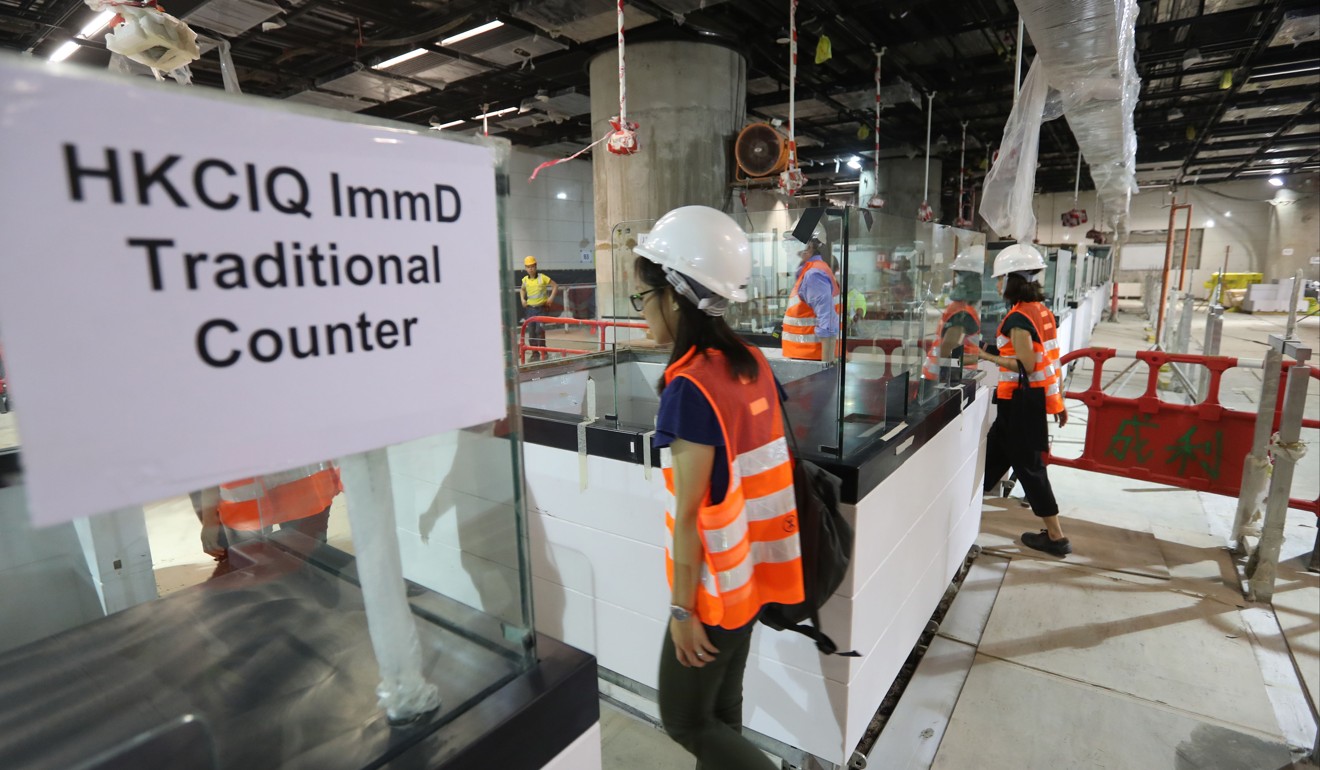
Landmark Hong Kong-mainland rail checkpoint deal on track to be finalised
City’s Chief Executive Carrie Lam Cheng Yuet-ngor and Guangdong Governor Ma Xingrui will sign controversial co-location agreement on Saturday
Hong Kong and the mainland will seal a politically contentious deal on Saturday to set up a joint checkpoint for the high-speed rail link to Guangzhou, dismissing critics’ warnings that it undermines the city’s autonomy.

Enacting the relevant legislation would be the final step, so as to “ensure timely implementation of the co-location arrangement”, “fully unleashing the transport, social and economic benefits” of the cross-border railway, and “maximising convenience to passengers”, according to a government statement issued on Friday.
A government source said the full agreement would not be released before the mainland’s top legislative body endorses it, but “descriptions” of the deal would be provided on Saturday.
How Hong Kong democrats’ filibustering plan on joint checkpoint motion backfired
The government counters that it is a purely practical arrangement with no rolling back of the city’s autonomy.
New concerns have also arisen after Secretary for Justice Rimsky Yuen Kwok-keung remained vague this week about questions over what legal basis would be used for such a set-up.
Basic Law Committee member Rao Geping challenged the suggestion, asking: “How would this be appropriate for co-location?”
The intention of Article 20, Rao said, was for the NPCSC to “exercise discretion to add power of autonomy” for Hong Kong.
This meant the party being awarded power was Hong Kong, he added.
Lawmakers finally back Hong Kong government’s push for joint railway checkpoint with mainland
Earlier this week, Basic Law Committee chairman Li Fei, a senior mainland Chinese official who specialises in the mini-constitution, was quoted as telling a visiting delegation of Hong Kong barristers there was no decision on the application of Article 20.
“The legal basis is still a question mark for now and the public has no idea about the arrangement,” said Tanya Chan, the opposition lawmaker convening a co-location concern group. “It is very inappropriate for Lam to press ahead with the signing on her own. I demand the government disclose the arrangement before signing.”
“We condemn the government for operating in the dark,” said fellow lawmaker Charles Mok, convenor of Legco’s pro-democracy bloc.
Pro-Beijing lawmaker Michael Tien Puk-sun said it was not important when the deal would be signed, but urged the government to table the bill at Legco as soon as possible for detailed scrutiny.

